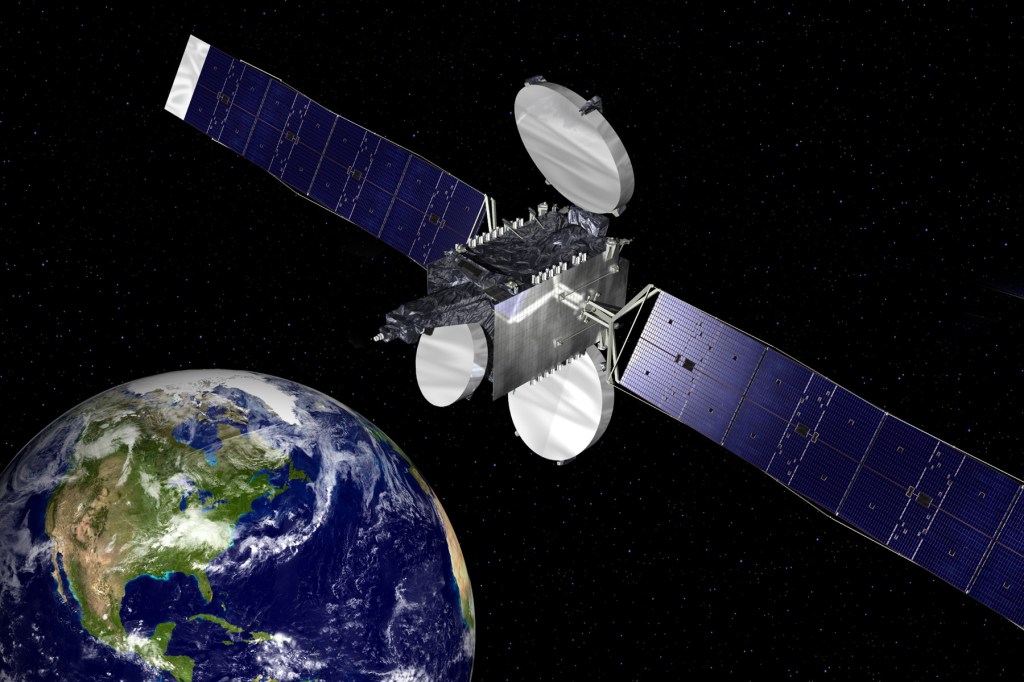Mohammad Marashi
According to research firm Gartner, more than 20 billion connected things will be in use worldwide by 2020. From connected vehicles to connected homes, the Internet of Things (IoT) promises a host of benefits for industry and consumers.
But what communications technology is prepared to handle 20 billion connections — with some emanating from planes over oceans, a pipeline across desolate tundra or an oil platform in the North Sea?
No single technology or company can reach all the possible markets and customers — while handling the flood of connections required and mounds of data that will be captured.
Given the ubiquity of space-based communications, satellite technology will play a critical role in supporting the development of the IoT sector and realizing the full potential of interconnected devices.
This is why satellite operators are investing and collaborating to develop services and hardware that can enable IoT. At the same time, operators are making sure satellite-based solutions can be easily integrated into hybrid networks that combine fiber, wireless networks and satellite to best serve the IoT sector and customers at all levels.
Making satellite more accessible
For decades, the satellite has been playing a major role in supporting IoT development. Business operations that extend into remote areas rely on satellites to provide communications for facility monitoring and instantaneous asset management at unmanned sites and offshore platforms.
Now, NSR estimates that by 2023 there will be 5.8 million machine-to-machine (M2M) and IoT connections via satellite worldwide. Combined with new technologies that generate low cost-per-bit connectivity, the satellite industry is redefining the solutions it can provide to address the largest communications requirement our world has ever known.
Satellite-enabled IoT is currently dominated by narrowband providers, such as L-band. However, with the advent of high-throughput Ku-band and Ka-band satellite connections, the capabilities in orbit have created a broadband superhighway in space — easily handling the potential volume of opportunity in the IoT and M2M sectors.
To truly have a major impact, access to satellite services needs to be made easier than ever. In other words, ditch the dish in favor of electronic antennas and power-friendly modems to make installing and using satellite simpler for people and devices. This requires innovation throughout the satellite ecosystem, to facilitate access while complementing other technologies to enable hybrid solutions.
For example, the most progressive satellite operators have made strategic investments with meta-material-based antenna-technology providers. These partnerships will yield a range of antenna and terminal products no bigger than a laptop in size. They’ll serve application verticals such as mobility, content delivery and wireless backhaul.
In addition, a new model that combines the advantages of satellites in geostationary orbit with those offered by constellations of satellites in low-earth orbit will redefine satellite communications. These hybrid fleets will deliver broadband coverage of the polar regions. They also will be able to layer bandwidth for regions or applications with high-density traffic, as well as for critical applications where redundancy is required.
Broadcast capability for connected cars
Delivering bandwidth to the connected car market also represents a major opportunity for communications companies. We are just beginning to see this technology develop with cars on the road today using LTE cellular networks. However, the delivery systems that fully enable this sector will rely on hybrid connectivity featuring both satellite and terrestrial technologies.
The global nature of satellite systems and the ability to broadcast to multiple points is the most efficient signal delivery on earth. Satellite broadcasts can work seamlessly with terrestrial cell carriers to achieve global coverage and enable auto manufacturers to reach all of their vehicles on a single network.
This means the billions of dollars spent each year by car manufacturers to recall vehicles for software upgrades could be avoided. Instead, satellites will broadcast software updates to cars on a global basis. Broadcast capabilities give satellites a strategic advantage in delivering both operating and navigation software updates that will be essential as we move into the next decade.
Satellites also boast vastly superior cybersecurity, a major consideration when contemplating a future where software is the most important element of your car’s operations. It offers a consolidated distribution opportunity that reduces cyberattack vectors by eight or nine orders of magnitude, when compared to cellular in terms of entry and exit points.
Connectivity for autonomous vehicles
Terrestrial Wi-Fi and cellular networks support just a portion of the grid that will be required to allow fully autonomous vehicles to navigate city streets and highways. Satellite communications will play an important role in the connectivity and autonomy of intelligent cars.
An autonomous vehicle requires two different types of external signal connections. Functions of the car such as steering or braking that need information about other vehicles along a route must rely on terrestrial networks with virtually no signal latency, because of the time-sensitive nature of these interactions.
Other vehicle functions that need less time-sensitive information can rely on satellites as a medium of communications, because of the inherent attributes of ubiquity and broadcast for satellite technology. For example, satellites can multicast updates to cars concerning road conditions ahead, and local imaging of city streets and mapping of selected routes — without fear that a sudden peak in traffic on the wireless network slows or knocks out response times.
The IoT cannot exist without the support of satellite companies. The most forward-thinking satellite operators are now implementing initiatives to ensure that the IoT movement makes the best use of what satellite technology has to offer.































Comment